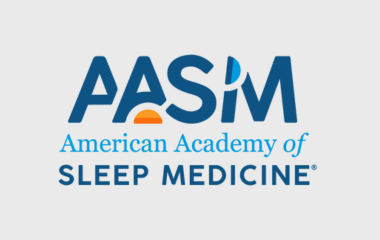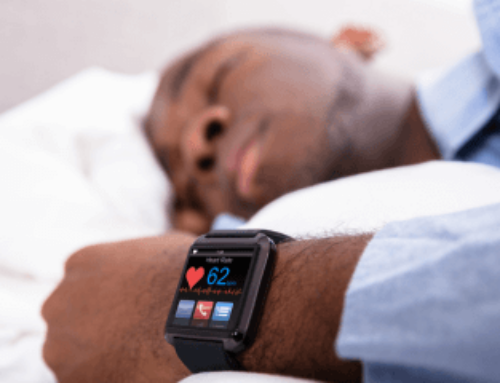In the context of recent changes in federal funding, staffing, and administrative requirements related to biomedical research and health care, the American Academy of Sleep Medicine (AASM) is advocating for robust federal investments in sleep and circadian research and clinical sleep medicine. Addressing sleep health is vital for the overall health and well-being of every American.
The AASM acknowledges that policy changes are needed to reduce the current U.S. budget deficit and the growing national debt. In alignment with this goal, federal support for sleep research and sleep care is a sound investment that produces economic growth, cost savings, medical innovations, and health care outcomes that benefit both the government and taxpayers. The AASM urges the White House, Congress, and federal agency leaders to recognize that sleep is essential to health and to prioritize sleep through programs administered by agencies including the National Institutes of Health (NIH), Department of Veterans Affairs (VA), and Centers for Medicare & Medicaid Services (CMS).
National Institutes of Health (NIH)
As the world’s leading funder of biomedical and behavioral research, NIH turns scientific discoveries into better health for all by producing scientific breakthroughs that improve disease prevention, diagnosis, and treatment. This research also drives economic growth through job creation, drug development, medical product innovation, and new patents. In 2024, NIH funding produced $94.58 billion in new economic activity nationwide — or $2.56 of economic activity for every $1 of research funding. NIH-funded studies provide the foundation for the industry-led research and development that makes the U.S. a global leader in medical innovation. The federal government must continue to prioritize NIH funding to ensure that the U.S. remains at the forefront of scientific discovery.
National Center on Sleep Disorders Research (NCSDR)
Established by Congress in 1993 and located within the National Heart, Lung, and Blood Institute (NHLBI) at NIH, the NCSDR coordinates sleep and circadian biology research throughout NIH and other federal agencies including the Centers for Disease Control and Prevention, Department of Defense, National Highway Traffic Safety Administration, and NASA. Insufficient sleep and untreated sleep disorders are associated with increased risks of cardiovascular disease, diabetes, obesity, cancer, and Alzheimer’s disease, as well as higher rates of workplace accidents, motor vehicle crashes, and mortality. Research coordinated by NCSDR targets the root causes of these risks in children and adults by focusing on prevention and sleep health, sleep disorders medicine, neurobiology of sleep, and chronobiology and ventilatory control. The significance of circadian rhythms research was affirmed when the Nobel Prize was awarded in 2017 to three circadian biologists in the U.S. Federal support for sleep and circadian research through NCSDR has a transformative impact on the health of the American people.
Department of Veterans Affairs (VA)
As America’s largest integrated health care system, the Veterans Health Administration provides care for more than 9 million veterans at 1,380 health care facilities across the country. Sleep problems are common in the military and often persist long after service members return home from deployment, contributing to ongoing medical and mental health problems. Sleep medicine physicians and other sleep clinicians at VA facilities play a critical role in addressing chronic insomnia and sleep problems related to post-traumatic stress disorder, traumatic brain injury, and depression. About 1 in 3 veterans treated by the VA in 2023 – more than 1.7 million – also have obstructive sleep apnea, a chronic disease that is detrimental to health and well-being. The innovative VA TeleSleep Program is improving access to care for the millions of veterans with sleep problems, especially those in rural areas. Federal support for sleep care through the VA improves health and quality of life for the brave men and women who have served in the U.S. armed forces.
Centers for Medicare & Medicaid Services (CMS)
The beneficiaries who receive health coverage through CMS include more than 66 million older adults who are insured through Medicare. While sleep is essential for healthy aging, sleep disorders such as obstructive sleep apnea become even more common in older adults. Data show that undiagnosed sleep apnea is associated with increased health care resource utilization and costs among Medicare beneficiaries. Fortunately, effective treatment of sleep apnea reduces their risk of hospital readmission and improves other health outcomes, including lowering their risk of stroke. There are 5,700 board-certified sleep medicine physicians in the U.S., but ongoing physician payment cuts and rising inflation are making it difficult for them to maintain their practice. Therefore, the AASM supports the recommendation of the Medicare Payment Advisory Commission (MedPAC) and the American Medical Association (AMA) to reform Medicare payment by linking updates for physician practices to the growth in the cost of providing care. Federal support for sleep physicians through Medicare ensures that older adults receive high-quality, cost-effective care for sleep disorders.
Learn more about why sleep is a national health priority.
###
For additional information or to schedule an interview with an AASM spokesperson, contact media@aasm.org.
About the American Academy of Sleep Medicine
Established in 1975, the AASM is a medical association that advances sleep care and enhances sleep health to improve lives. The AASM membership includes more than 9,500 physicians, scientists, and other health care professionals who help people who have sleep disorders. The AASM also accredits 2,300 sleep centers that are providing the highest quality of sleep care across the country.





